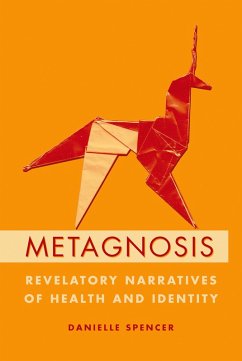
Intelligent Assistive Technologies for Dementia (eBook, ePUB)
Clinical, Ethical, Social, and Regulatory Implications
Redaktion: Jotterand, Fabrice; Elger, Bernice; Wangmo, Tenzin; Ienca, Marcello
Versandkostenfrei!
Sofort per Download lieferbar
41,95 €
inkl. MwSt.
Weitere Ausgaben:

PAYBACK Punkte
21 °P sammeln!
The financial burden and the level of specialized care required to look after older adults with dementia has reached the point of a public health crisis. Older adults diagnosed and living with the disorder reached 35.6 million worldwide in 2010 and is expected to increase to 135.5 million in 2050, with costs soaring to $1.1 trillion. In the face of the increasing burden this disorder poses to health care systems and the management of this patient population, intelligent assistive technologies (IATs) represent a remarkable and promising strategy to meet the need of persons suffering from dement...
The financial burden and the level of specialized care required to look after older adults with dementia has reached the point of a public health crisis. Older adults diagnosed and living with the disorder reached 35.6 million worldwide in 2010 and is expected to increase to 135.5 million in 2050, with costs soaring to $1.1 trillion. In the face of the increasing burden this disorder poses to health care systems and the management of this patient population, intelligent assistive technologies (IATs) represent a remarkable and promising strategy to meet the need of persons suffering from dementia. These technologies aim at helping individuals compensate for specific physical and cognitive deficits, and maintain a higher level of independence at home and in everyday activities. However, the rapid development and widespread implementation of these technologies are not without associated challenges at multiple levels. An international and multidisciplinary group of authors provide future-oriented and in-depth analysis of IATs. Part I delineates the current landscape of intelligent assistive technologies for dementia care and age-related disability from a global perspective, while the contributions in Part II analyze and address the major psycho-social implications linked to the development and clinical use of IATs. In the last section, essays examine the major ethical, social and regulatory issues associated with the use of IATs in dementia care. This volume provides an authoritative and comprehensive overview of how IATs are reshaping dementia care.
Dieser Download kann aus rechtlichen Gründen nur mit Rechnungsadresse in A, B, BG, CY, CZ, D, DK, EW, E, FIN, F, GR, HR, H, IRL, I, LT, L, LR, M, NL, PL, P, R, S, SLO, SK ausgeliefert werden.













